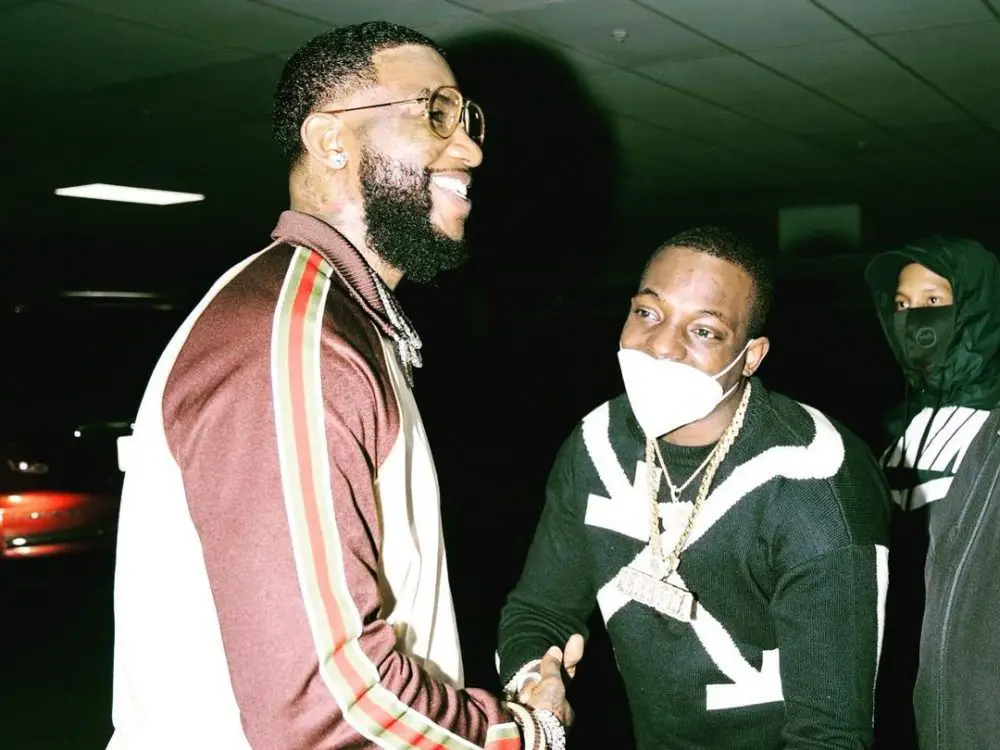Bobby Shmurda’s music has long been influential in the world of rap and pop culture, and many music listeners may not realize how much music they know from the artist. Shmurda’s “Hot N—-,” which originally blew up on Vine, birthed the viral Shmoney dance. The song has also long been used on TikTok as well, especially the Caked Up remix. The song comes from Shmurda’s 2014 EP, “Shmurda She Wrote,” which debuted at No. 79 on the Billboard 200, and later peaked at No. 6, charting for two weeks total. Shmurda signed with Epic Records shortly after his EP was released.
Shmurda’s music style is often described as drill music, which is characterized by dark and violent lyrics over trap-influenced beats. The genre, which originally contained lyrics primarily about crime in Chicago, began to grow in Brooklyn with Shmurda and Rowdy Rebel’s song “Living Life,” which was also borne from his EP.
Shmurda did not receive much attention until “Hot N—–” went viral in 2014. This song was especially significant not only due to the resulting Shmoney dance, which reached a level of virality that prompted Beyonce and Jay-Z to replicate the dance during their tour, but also due to the subsequent attention from other important hip-hop figures. The popularity of the song resulted in instrumental freestyles from famous rappers including Juicy J, French Montana, Lil’ Kim, Gunplay, T.I. and more. Shmurda, in an interview with djvlad, described Jay-Z and Beyonce’s replication of the Shmoney dance as “legendary.” He also discusses the importance of his deal with Epic, which allowed him and his family to move out of the “hood.”
Bobby Shmurda, whose real name is Ackquille Pollard, was born in Miami, Florida, in 1994. After his father’s incarceration, Shmurda and his mother moved to Brooklyn. Shmurda’s youth, as explained in his incriminating songs, was often characterized by participation in gang activity and drug trafficking. Shmurda had multiple run-ins with law enforcement during his time in Brooklyn, and these instances are documented in his songs. Shmurda has long been part of the GS9 gang, which controlled parts of Brooklyn, especially along Kings Highway. Shmurda is now 26 years old.
Arrest and Prison Time
Dec. 17, 2014, around a month after the release of Bobby Shmurda’s first album, New York City police officers arrested Shmurda and the rest of his GS9 Crew at Quad Studios as part of a long-running narcotics investigation. Shmurda was believed to be the main actor in the GS9 gang, which, along with producing music, dealt drugs and participated in gang battles. Shmurda was charged with drug and gun possession, reckless endangerment and conspiracy to commit murder. Facing a maximum sentence of 8-25 years, Shmurda pleaded guilty to his charges. Shmurda later was caught attempting to smuggle a knife into jail with his ex-girlfriend. This time he initially pleaded not guilty, but during a plea deal, pled guilty to third-degree conspiracy and weapons possession. In 2017 Shmurda was given another concurrent sentence, this one four years, for sneaking a shiv into his cell.
Release
While Shmurda is technically free, he was released conditionally from Clinton Correctional Facility under community supervision until the completion of his sentence in February of 2026. Shmurda was reported to have been picked up from prison by Quavo, a member of Migos. Quavo has shared his excitement for the rapper to return to the music scene. Other famous rappers have shared their excitement for the release of Shmurda. Rowdy Rebel, who created the hit song “Shmoney Dance” alongside Shmurda, reportedly gifted him a glow-in-the-dark chain to celebrate his release from prison. The necklace reads SHMURDA in bold letters and is seen in its sparkling glory on the jeweler’s Instagram, @ericdajewler, appearing to glow green when the lights turn off. The jeweler, who goes by Eric da Jeweler, claimed the piece to be “the hardest emerald piece out NEW YORK” in the caption of the video. Bobby Shmurda showed the piece off on his Instagram, captioning it “Appreciate it Bruh.”
https://www.instagram.com/p/CLz6Oc2nt2a/?utm_source=ig_embed
Examining Shmurda’s Platform Post Criminal Charges
Looking at the outcry for the release of Bobby Shmurda, as well as the countless other musicians that have faced jail time for criminal charges, it begs the question, why is America so obsessed with crime and criminal justice? Why do the same people that condemn crime on a small scale praise musicians who commit the same crimes, and glamorize them in their music? While Bobby Shmurda’s criminal convictions did not involve sexual misconduct, other musicians, such as Tekashi 6ix9ine, continue to have a platform amid accusations of sexually assaulting minors.
While 6ix9ine and Bobby Shmurda are similar in that they continue to receive public praise and support after conviction, 6ix9ine is often “trolled” on Instagram for ratting out his fellow gang members in exchange for a shorter prison sentence. The disparities in criminal justice are also clear when examining the sentences that musicians have served. While Bobby Shmurda served a measly five years for his multitude of charges and 6ix9ine received only two years, there are low-income Black Americans who have spent decades in prison for nonviolent drug charges. The result of money and public influence on the criminal justice system is undeniable.

















